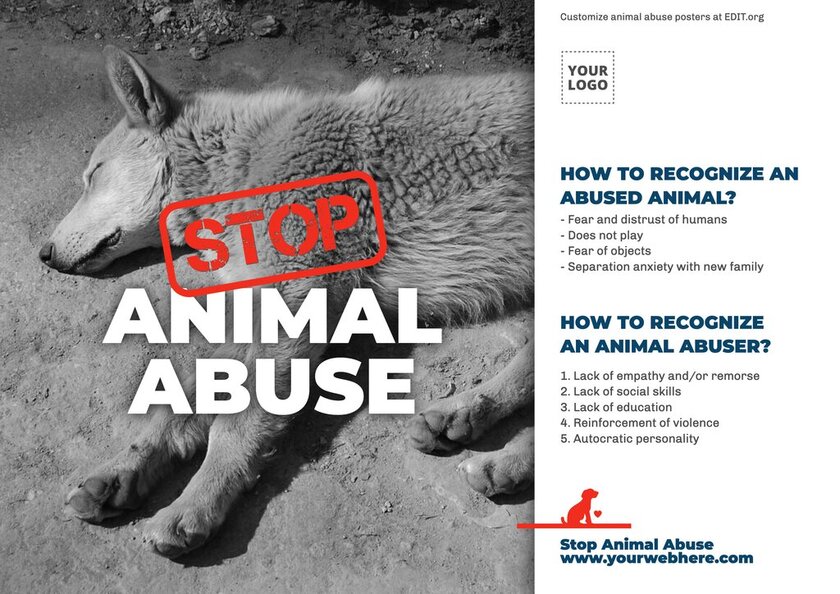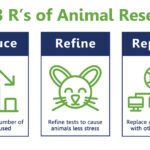Animal abuse represents a grievous breach of ethical conduct, manifesting in various forms and affecting innumerable sentient beings worldwide. While the plight of animals may ignobly seem distant from everyday concerns, there exists an array of pragmatic approaches that individuals can employ to combat this pervasive issue, irrespective of their activist inclinations. Whether you find yourself immersed in the daily grind or honing professional aspirations, you can still contribute meaningfully to the cause of animal welfare.
The first step in addressing animal abuse involves fostering an understanding of its many manifestations. Animal cruelty often surfaces in the form of neglect, abandonment, or direct harm. The plight of tethered dogs, for instance, may involve extreme physical and psychological deprivation, while factory farming practices frequently subject animals to appalling living conditions. Recognizing these instances as universal infringements upon the rights of animals is paramount in beginning the journey toward advocacy.
Education serves as a fundamental tool in demystifying animal cruelty and equipping individuals with the knowledge necessary to confront it. One need not become an ardent activist to engage in educational endeavors. Simply sharing articles, books, or documentaries related to animal welfare within personal and professional networks can spark crucial conversations. Collective knowledge engenders understanding, ultimately leading to responsible behaviors and attitudes toward animals.
Moreover, supporting local animal shelters is another effective means to mitigate animal abuse. Shelters often serve as sanctuaries for mistreated and abandoned animals, desperately needing volunteer assistance and resources. Contributing time, even on a limited basis, allows individuals to become intimately involved with the welfare of animals in their community. Activities may include walking dogs, fostering animals, or even coordinating fundraising events. The volition to assist can cultivate profound change and offer tangible relief to suffering creatures.
Financial contributions also play a pivotal role in the fight against animal abuse. Nonprofits dedicated to animal welfare often depend heavily on donations to sustain their operations. Allocating a portion of one’s income, however modest, can assist in providing food, shelter, and medical care to affected animals. Furthermore, patrons should remain cognizant of how funds are utilized and ensure their contributions benefit reputable organizations with a transparent mission.
Another noteworthy method lies in advocating for animal-friendly policies and legislation. Regularly contacting local representatives to express support for specific animal welfare laws can be surprisingly effective. Constituents wield power in democracy, and legislators are often swayed by public opinion. Writing letters or making phone calls to demand change can amplify the voice of compassion and contribute to legal frameworks that protect animals from harm. When individuals engage in political processes, they are adhering to a democratic responsibility that spurs accountability within institutions.
Social media serves as a contemporary arena for influencing cultural perspectives on animal welfare. By sharing personal stories, relevant news articles, or insightful infographics, individuals can engage wider audiences in discussions surrounding animal cruelty. The viral landscape of digital platforms allows narratives about animal suffering to reach innumerable hearts and minds. Moreover, supporting organizations through social media campaigns can bring attention to specific cases of abuse and drive significant public engagement.
Consumer choices represent a formidable avenue for activism without the need for direct involvement. Mindful consumption entails making informed decisions about the products and services one supports. For example, choosing cruelty-free products ensures that no animal experimentation contributed to the manufacturing process. Understanding the ethical implications behind brands empowers consumers and compels companies to adopt more humane practices. Additionally, patronizing local businesses that prioritize animal welfare can create a ripple effect, leading to broader societal change.
Engaging in conversations with individuals who may remain indifferent or unaware of animal abuse is another practical approach to fostering awareness. While initially daunting, respectful dialogue can facilitate profound shifts in perspective. Providing insights about the realities of animal suffering can extend empathy and encourage more humane attitudes. It is essential to approach such discussions with patience and a genuine desire to enlighten rather than to accuse, as this will breed a more receptive environment for change.
Furthermore, participating in community events that focus on animal welfare can also provide opportunities to connect with like-minded individuals. Events such as adoption drives, community clean-up initiatives, and fundraising galas foster camaraderie among participants and allow individuals to collectively amplify their impact. By immersing oneself in communal efforts, the quest to alleviate animal suffering becomes a shared responsibility, forging a network of compassion.
It is critical to maintain vigilance concerning animal welfare. By remaining observant and vigilant, individuals can report suspected cases of animal cruelty to local authorities, thereby fulfilling a civic duty. Recognizing the signs of abuse—such as malnutrition, physical harm, or abnormal behavior—can empower citizens to take action. Reporting such instances can lead to thorough investigations and potentially save lives. Being an informed observer cultivates a culture of accountability wherein perpetrators are held liable for their actions.
Finally, fostering a mindset that champions compassion and empathy toward animals can yield profound societal benefits. Cultivating respect for all living beings can reshape future generations and create a lasting legacy of kindness. Instilling the values of empathy within families, schools, and communities ensures that the ethos of compassion extends beyond individual efforts, becoming an integral fabric of societal consciousness.
In conclusion, the fight against animal abuse is not the sole responsibility of designated activists—it is a communal duty that each individual can participate in according to their capacity and inclination. By educating oneself and others, supporting animal welfare organizations, advocating for humane legislation, and making conscious consumer decisions, anyone can contribute to the welfare of animals. Collectively, these efforts can create a transformative ripple effect, fostering a society that regards the preservation of animal rights as paramount. Each deliberate action taken against this egregious affront to sentient beings can cultivate a world that espouses compassion and kindness towards all living creatures.






